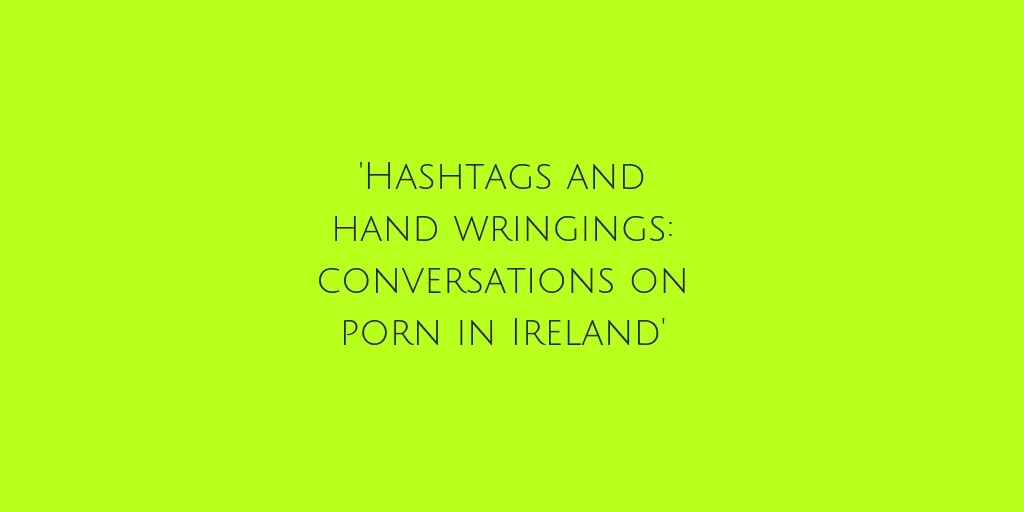

A cover-up - whatever happened to our national conversation on porn?
A new study on current attitudes and media commentary around pornography in Ireland has uncovered a distinct absence of responsible discourse on the topic, as well as a notable lack of data on perceptions, profiles, demographics and the numbers of Irish people who consume porn.
Undertaken by researchers at DCU, the findings are contained in an article, 'Hashtags and hand wringings: conversations on porn in Ireland', which has just been published in Porn Studies Journal.
Commenting on the analysis, Caroline West, Doctoral Scholar in Sexuality Studies at DCU's School of Applied Language and Intercultural Studies (SALIS), who conducted the study, said: "In 2016, shortly before the end of his leadership, Taoiseach Enda Kenny called for a ‘national conversation on porn’. His call was accompanied with the usual metaphors of ‘avalanches’ and corruption of the nation's youth. He argued there was a need for this conversation, as ‘what used to be termed the ‘’lads’ magazines’’ have grown to be replaced with a pornography that is as ubiquitous as it is damaging’. The media ran with these statements, and a conversation of sorts did open up. However, the commentary that followed was, for the most part, neither calm nor rational."
The study referenced how a range of newspapers, glossy magazines and TV talk shows all weighed in on the call for a national conversation on porn, some more salaciously and irresponsibly than others. Specific interviews and incidents on The Late Late Show (which drew a comparison between porn users and people who experience PTSD from watching ISIS beheadings online) and Pat Kenny Tonight (on which Irish porn performer Amanda Norton was interviewed about her experiences) provoked a negative backlash which called for calm discussions with practical tips on how to talk to children, instead of sensationalist statements.
The study did point to some recent attempts to survey (via the Twitter hashtag #pornweek) Irish people's attitudes to pornography, but noted that this survey of 1,000 Irish participants did not reveal details such as religious beliefs, sex education history, or nuanced details about the kind of porn consumed.
The study also highlighted how the call for a national conversation on porn was met with a humorous response from the general public in the form of hashtags such as #endaporn.
In terms of quantifying and understanding Ireland's relationship with pornography, West stated: "There is a lack of thorough research on porn in Ireland on any level. Numbers-wise, we do know that there is a large Irish appetite for porn. However, there remains a chasm between official reports, and in depth knowledge of public use and attitudes to porn. Additionally, proving that a rise in sexual assault is linked to porn would be especially difficult in this country, as Ireland has a historically bad record in recording sexual assault. We know that Ireland is a changing society on so many levels, and yet information gaps in this space leave a lot to be desired. These details are crucial in a changing Irish society which does not have a history of open conversation around sexuality, especially around any pleasurable aspects of sexuality. Thus, nuanced research is needed to address universalistic statements positioning porn solely as a source of harm in Irish society, in order to navigate more effectively through ideology, sensationalism and shame."
KEY FINDINGS
- The 2016 call by Enda Kenny for a 'national conversation on porn' was met with commentary that the researcher has described as being neither calm nor rational;
- Media reporting in the wake of this call focused on sensationalist and negative elements of pornography in Ireland;
- National attitudinal surveys on pornography in Ireland have not revealed details such as religious beliefs, sex education history, or the kind of porn consumed;
- There is a lack of thorough research on porn in Ireland and nuanced research is needed to address universalistic statements positioning porn solely as a source of harm in Irish society, in order to navigate more effectively through ideology, sensationalism and shame.
